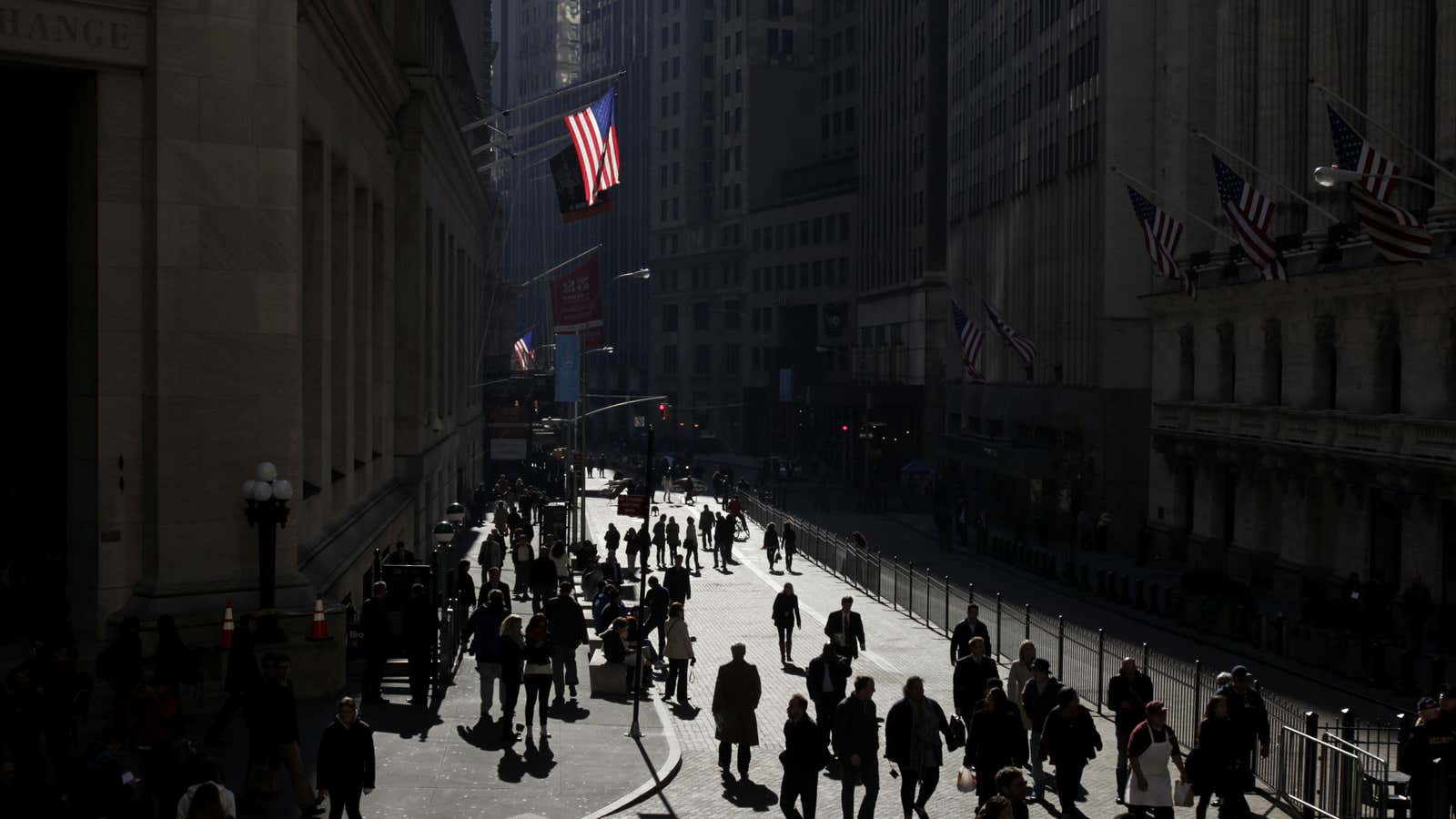If you were furious after watching The Big Short, you had good reason. A new study looking at a decade’s worth of data on financial advisers in the United States found evidence that financial firms really do take advantage of people.
About one in 14 financial advisers (7.3%) in the US have engaged in misconduct at least once in their careers, according to researchers from the University of Chicago who looked at the records of 1.2 million stockbrokers and investment advisers registered to work in the US from 2005 to 2015.
And their study suggests that those who play dirty keep playing dirty. Advisers with prior records of misconduct are five times more likely than the average to engage in misconduct. One enabling factor: While about half of those who engage in misconduct lose their jobs, 44% of them find new employment in the industry within a year, suggesting the industry has a certain tolerance—or in some cases even a preference—for those with blemished records.
“Some firms ‘specialize’ in misconduct and attract unsophisticated customers,” the authors note in their study.
Not surprisingly, the study finds concentrations of misconduct in places with older, less educated, and less financially sophisticated populations. The researchers observed statistically significant increases in misconduct rates in counties with a higher percentage of residents age 65 and over—while in counties where the ranks of the college educated are higher, misconduct rates are lower.
And yet, the study also finds that higher-income counties also experience relatively high levels of misconduct, suggesting a relationship between higher demand for financial advice and misconduct by financial advisers. But then again, anyone familiar with The Big Short or The Wolf of Wall Street could have guessed that were true.




